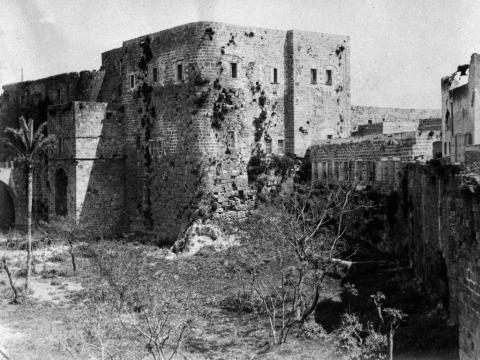Hear how he treats his enemies. One instance of many I have heard will suffice. When the Master came to 'Akká there lived there a certain man from Afghanistan [Haji Siddiq], an austere and rigid Mussulman [Muslim]. To him the Master was a heretic. He felt and nourished a great enmity towards the Master, and roused up others against him. When opportunity offered in gatherings of the people, as in the Mosque, he denounced him with bitter words.
'This man,' he said to all, 'is an imposter. Why do you speak to him? Why do you have dealings with him?' And when he passed the Master on the street he was careful to hold his robe before his face that his sight might not be defiled. Thus did the Afghan. The Master, however, did thus: The Afghan was poor and lived in a mosque; he was frequently in need of food and clothing. The Master sent him both. These he accepted, but without thanks. He fell sick. The Master took him a physician, food, medicine, money. These, also, he accepted; but as he held out one hand that the physician might take his pulse, with the other he held his cloak before his face that he might not look upon the Master. For twenty-four years the Master continued his kindnesses and the Afghan persisted in his enmity.
Then at last one day the Afghan came to the Master's door, and fell down, penitent and weeping, at his feet. 'Forgive me, sir!' he cried. 'For twenty-four years I have done evil to you, for twenty-four years you have done good to me. Now I know that I have been in the wrong.' The Master bade him rise, and they became friends.
